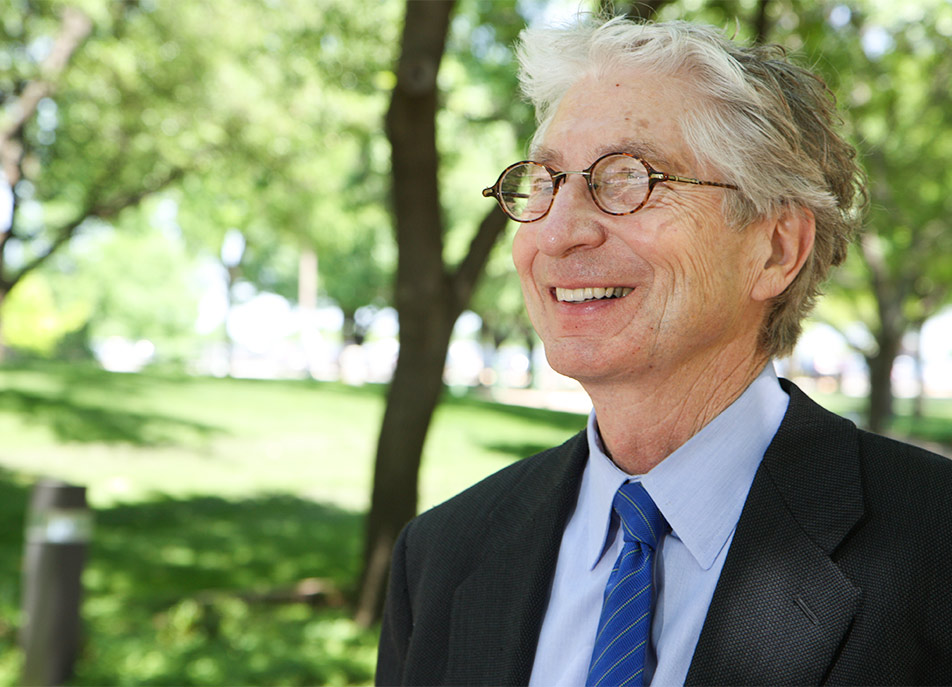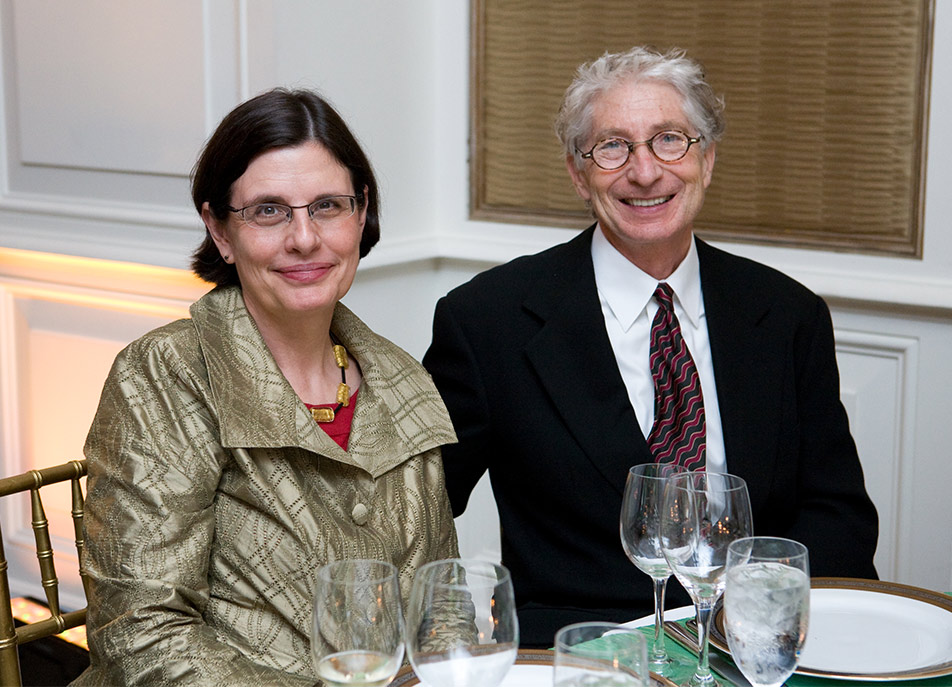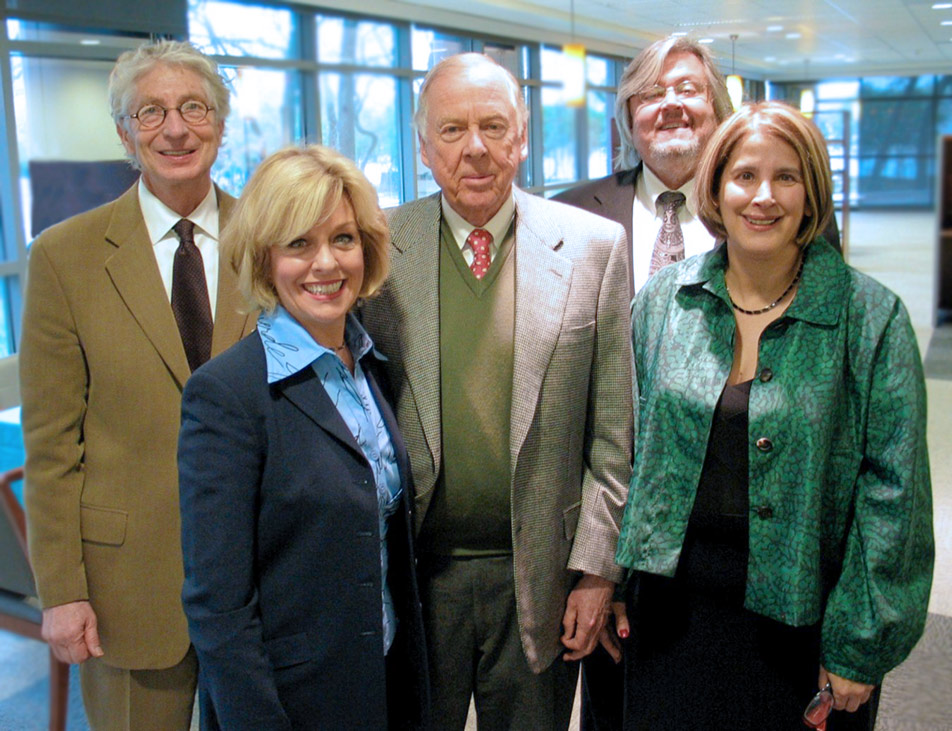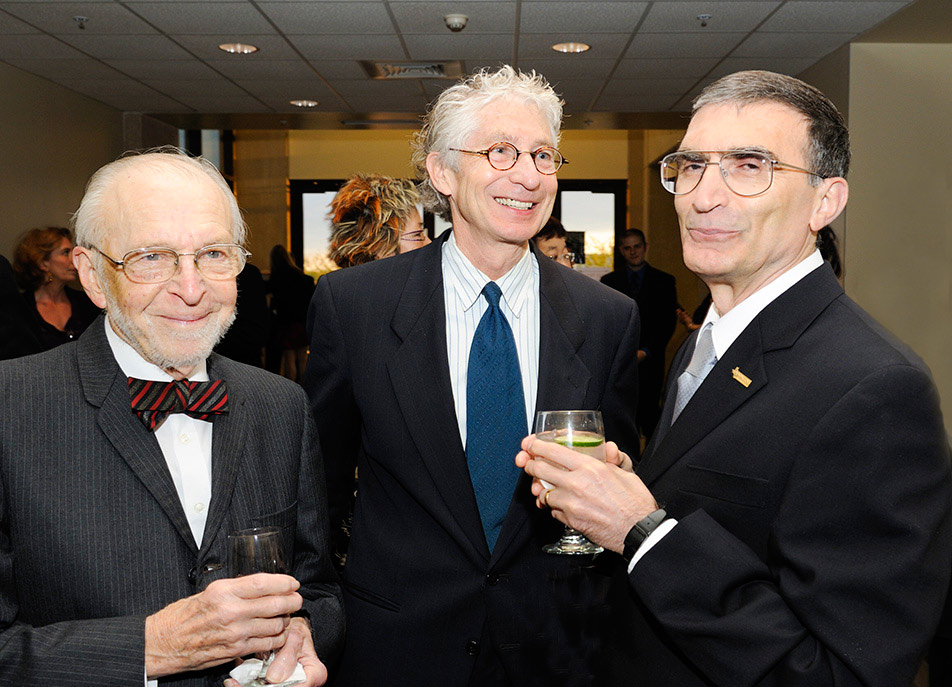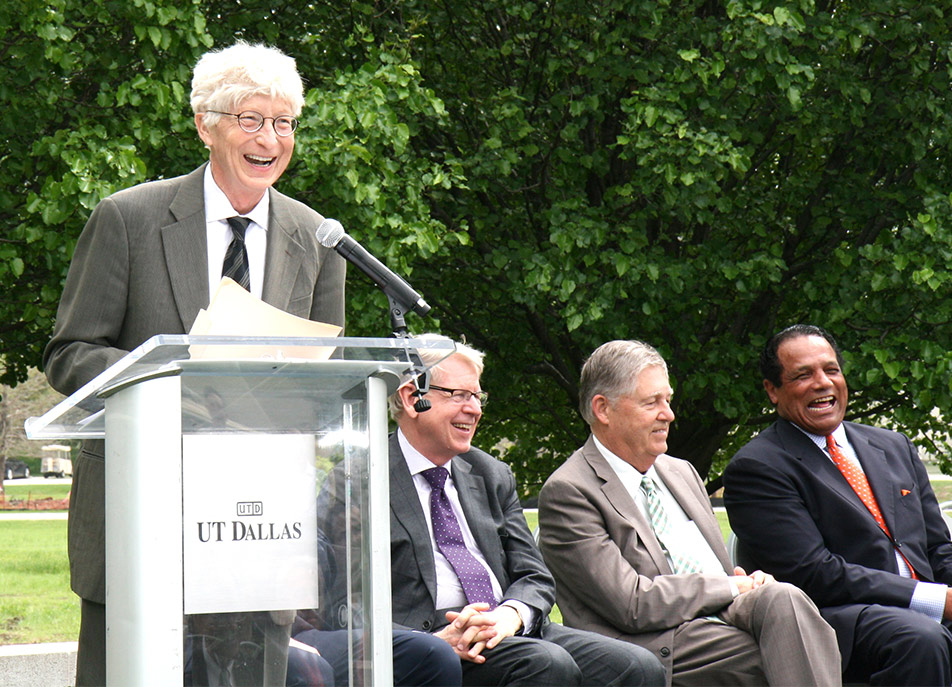Former BBS Dean Bert Moore Remembered as Visionary Leader, Scholar; Memorial Service Set
By: Office of Media Relations | Oct. 22, 2015
Dr. Bert Moore, who led the School of Behavioral and Brain Sciences (BBS) as dean for 26 years, died Tuesday at the age of 71.
A memorial service in his honor will be held at 2 p.m. Saturday at the Edith O’Donnell Arts and Technology Building lecture hall.
“The entire UT Dallas community has been saddened to learn of the death of Dean Bert Moore,” said Dr. Hobson Wildenthal, president ad interim. “Bert was unwavering in his dedication to his school’s community of students, staff, and faculty. He hired and mentored a faculty outstanding in their dedication to teaching and in their achievements in research. His commitment to supporting the mission of the University and enhancing the academic experience of our students drew unparalleled respect and affection from all who were fortunate to know him as a colleague over his many years of service.”
Memorial Service
A memorial service in Dr. Bert Moore’s honor will be held at 2 p.m. Saturday, Oct. 24, at the Edith O’Donnell Arts and Technology Building lecture hall.
Moore joined UT Dallas in 1980 as program head of the psychology department in the fledgling School of Human Development. He was appointed dean of the school in 1989. Fourteen years later, the school was renamed the School of Behavioral and Brain Sciences.
Under Moore’s leadership, the school’s enrollment grew from 387 to 2,427, the number of faculty members more than doubled, and the number of degrees increased from five to 13. He stepped down from the dean’s role on Sept. 1.
“He was a wonderful dean and, beyond that, the nicest guy I ever met,” said Dr. James Bartlett, interim BBS dean and Ashbel Smith Professor. “He will be missed.”
Dr. Marion Underwood, dean of graduate studies and BBS faculty member, said Moore’s vision for BBS and its faculty and students never wavered.
“Bert cared deeply for all of us he served at UT Dallas. He worried over us, and he inspired and encouraged us daily. He was a beloved mentor and friend, to me and to so many of us,” said Underwood, associate provost and Ashbel Smith Professor of Psychological Sciences.

“Bert made us all want to do better in our roles, whatever they were, in emulation of his own selfless dedication to the common good,” said Dr. Hobson Wildenthal (left), president ad interim.
Wildenthal said he was privileged to have worked with Moore for 23 years.
“Bert had outstanding abilities as an academic leader, starting with his distinguished record as a scholar,” Wildenthal said. “This record of research achievement, coupled with his deeply caring engagement with students in the classroom, made him an ideal leader by example. His strength as a great dean was further enhanced by his acute intelligence and a transparently evident ethical compass that engendered total trust from his colleagues as well as deep affection. His leadership was highlighted by his patient and sensitive ability to build consensus and avoid divisive conflict while achieving high goals.”
In addition to his duties as dean, Moore was a clinical professor of clinical psychology at UT Southwestern Medical School. Moore was also a fellow of the Association for Psychological Science and the American Psychological Association. His teaching interests included such topics as personality, systems of psychotherapy, personality-social development and behavioral medicine. His research focused on affect and cognition, development of empathy, as well as stress and immune system response.
Moore served as associate editor for the journal Motivation and Emotion, and also served on the editorial boards of Journal of Personality and Social Psychology, Child Development, Developmental Review and Merrill-Palmer Quarterly. Moore also served on review panels for National Institutes of Health and the National Science Foundation.
Recently, Moore was named 2015 Distinguished Psychologist by the Dallas Psychological Association, an award given annually to a Dallas-area psychologist who has made outstanding contributions to the field of psychology in clinical work, research or teaching.
One study for which Moore was well-known explored the ability of preschool children to delay gratification. The Marshmallow Test, as it was called, examined the reasons why some children were able to delay gratification while others were not.
In the community, Moore was known for his commitment to the civil rights movement. In 1965, Moore wrote a letter to Dr. Martin Luther King Jr., inviting him to speak at Southern Methodist University in Dallas, where Moore was a leader of the student body. King accepted the invitation and Moore personally drove King from the airport to the campus.
Moore received a bachelor’s degree in psychology from SMU, a master’s degree from the University of Illinois, where his specialization was clinical psychology, and his PhD from Stanford University, where his specialization was personality and experimental psychopathology. He joined UT Dallas after appointments at Wellesley College and the University of California at Santa Barbara, as well as visiting positions at UT Austin and Stanford.
Moore is survived by his wife, Dr. Lynne Kirk, a professor at UT Southwestern Medical Center; three children — Matthew Moore, Anne Kirk and Kory Kirk — and two grandchildren.
In lieu of flowers, memorial contributions may be directed to the Dean Bert Moore Endowment in the School of Behavioral and Brain Sciences, or the Bertrand S. Moore, Ph.D., and Lynne M. Kirk, M.D. Fund in Pancreatic Cancer Research, in honor of Muhammad Beg, M.D., at UT Southwestern.

“He was always so warm and encouraging, and took the time to stop me in the hall and say hello whenever he saw me. His genuine care for students was clear,” said Amanda Lewis BS’13 (left) on UT Dallas’ Facebook page. Share your memories and read others’ sentiments on this Facebook post.
Media Contact: The Office of Communications and Marketing, or the Office of Media Relations, UT Dallas, (972) 883-2155, newscenter@utdallas.edu.
